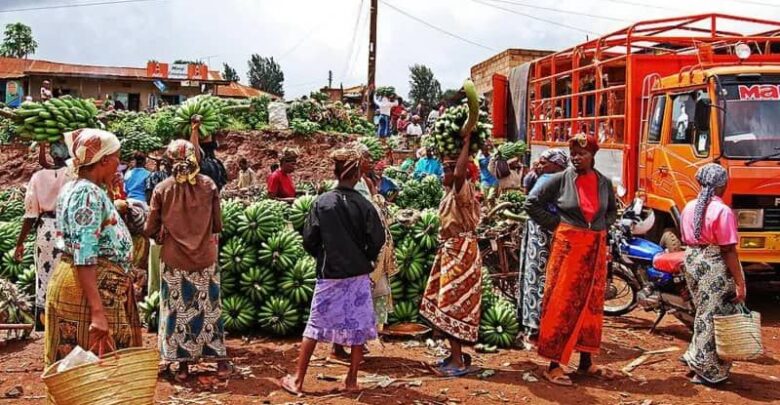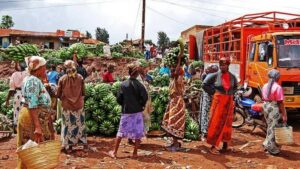News
Analysis: Tanzania’s trade ban sparks economic alarm for Malawi: A costly rift in regional integration

By Burnett Munthali
Tanzania has recently imposed a sweeping ban on all agricultural imports from both South Africa and Malawi.
This decision, which came into effect at midnight, has already begun to affect the bustling trade that usually flows through the Tanzania-Malawi border.
The border post, typically teeming with lorries transporting fresh produce and goods, was eerily quiet on Thursday.
Tanzanian traders have been ordered to halt all shipments to both countries, in what is shaping up to be a severe escalation of an ongoing regional trade row.

The trigger for Tanzania’s retaliation stems from its frustration over longstanding restrictions on some of its key exports.
South Africa, for years, has blocked bananas from Tanzania, citing sanitary concerns and protectionist policies.
Meanwhile, Malawi enacted a temporary import ban in March, covering products such as flour, rice, ginger, bananas, and maize from Tanzania.
Malawi’s Trade Minister, Vitumbiko Mumba, argued that the move was necessary to protect local industries from being overwhelmed by cheaper foreign produce.
He described it as a strategic move to foster a competitive environment for Malawian producers and reduce dependency on imports.
In response, Tanzania’s Agriculture Minister Hussein Bashe labelled Malawi’s move as “unfair and harmful” to Tanzanian traders.
Bashe insisted that Tanzania’s new ban is aimed at protecting national business interests and ensuring reciprocal treatment in regional trade.
Despite mounting economic tensions, Bashe confirmed that diplomatic engagements were still ongoing in an attempt to resolve the impasse.
The row, however, highlights the fragility of Africa’s ambitions for a unified free trade zone under the African Continental Free Trade Area (AfCFTA).
This continental agreement was meant to reduce trade barriers and facilitate economic integration, but the current standoff exposes underlying protectionist instincts among member states.
Tanzania’s ban will hurt South African exporters who rely on the Tanzanian market for selling fruit such as apples and grapes.
But for Malawi, the consequences could be far more severe and economically damaging.
Being landlocked, Malawi depends heavily on Tanzanian ports like Dar es Salaam for the export of cash crops including tobacco, soybeans, and sugar.
Additionally, critical imports like fuel and machinery also enter Malawi via Tanzania.
Without access to Dar es Salaam, Malawi may be forced to reroute its goods through the Mozambican ports of Beira and Nacala.
This rerouting is likely to be more costly, increasing transport times, freight charges, and reducing Malawi’s export competitiveness.
Transporters on both sides of the border are already suffering economic losses due to stalled cargo movements.
Trucks that typically carried bananas, tomatoes, and maize now sit idle at the border, with perishable goods rotting and drivers struggling to find alternative loads.
Businessperson Happy Zulu told the BBC that truck drivers are facing immense hardship as their usual livelihoods have been disrupted.
For Malawi, the timing of this fallout is particularly unfortunate as the country is battling inflation, high debt levels, and a weakening currency.
A prolonged disruption in trade logistics could worsen Malawi’s balance of trade, further constrain foreign exchange reserves, and push food prices even higher.
The ban could also destabilize domestic food security if essential imports like rice and flour are delayed or rerouted inefficiently.
Tanzania, on the other hand, has more flexibility to pivot towards alternative regional markets such as Kenya, Namibia, and South Sudan.
Minister Bashe sought to reassure Tanzanians that the ban would not jeopardize food availability, claiming that no one would “die from a lack of South African grapes or apples.”
However, the broader economic cost of regional discord, especially within the Southern African Development Community (SADC), could be immense.
SADC, which promotes regional integration, is being undermined by the very trade wars it seeks to prevent.
In the long term, this dispute underscores the urgent need for harmonized trade policies and effective conflict resolution mechanisms within the bloc.
For Malawi, a diplomatic resolution is not just desirable—it is imperative for its economic survival and continued access to international markets.
Failure to resolve the crisis quickly could lead to shrinking export revenue, rising inflation, and a slowdown in already fragile GDP growth.
It may also erode investor confidence, particularly in the agricultural and logistics sectors that are vital for job creation and rural development.
As talks continue, the stakes are high—not only for Malawi and Tanzania but for the vision of an economically integrated and prosperous Africa.






